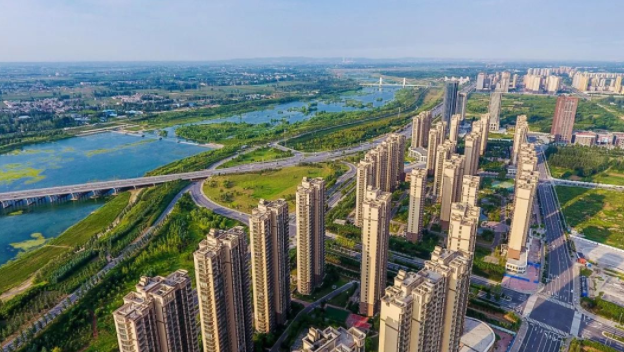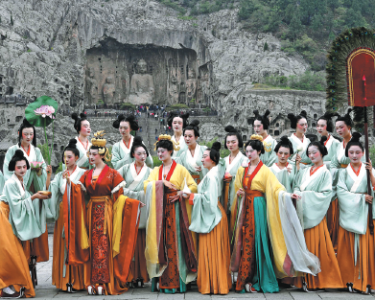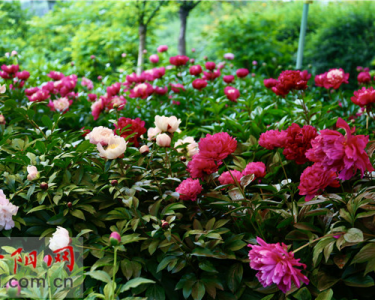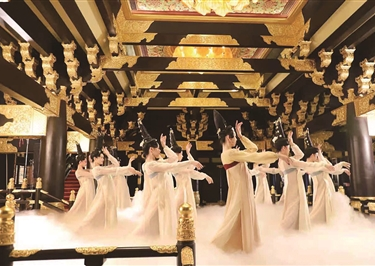Han 206-220 CE
Western Han 206 BCE-8 CE
Eastern Han 25-220 CE
The Han Dynasty lasted for over four hundred years-a golden age of great economic, technological intellectual, military, mercantile and bureaucratic advances.
Founding emperor Gaozu favoured Luoyang as his capital, remarking“I have travelled far and wide under heaven, and I have only seen Luoyang.”However pragmatism determined the capital would remain in Chang’an(Xian )though it eventually moved to Luoyang in 25 CE after a rebellion ,and was built on the ruins of the Eastern Zhou capital.
The re-established Eastern Han that supplanted the short-lived rebel Xin Dynasty ruled over China. It was during this period that China’s earliest Buddhist temples, the White Horse Temple, was constructed in Luoyang.
In the Three Kingdoms period, Luoyang continued to be a sought-after prize. The legends of the Three Kingdoms have been told for two thousand years, and every Chinese schoolchild knows the story of how treacherous general Dong Zhou ordered his soldiers to burn and sack Luoyang as he retreated from opposing forces. Eventually, in the process of suppressing peasant rebellion, three empowered generals carved up the Empire for themselves, but a suggestion of the dynasty’s enduring legacy can be
found in the name of Chinas majority ethnicity, which is still known as Han.
Luoyang enjoyed another period of prominence when Cao Pi, Emperor Wen of the Wei dynasty declared it his capital in 220 CE.
In the Jin dynasty(265-420 CE)which followed the Three Kingdoms, Luoyang was the capital before it was moved to Chang’an(Xian) in 311 and again to Jiankang(Nanjing) in 317.Luoyang then became the capital of the Northern Wei in 494 where it emerged as a principal Buddhist holy centre for East Asia. These capitals were essentially built on the sites of the old Zhou and Han cities. When in 534 the capital was moved again, the lines from a poem written by the late Emperor express just how esteemed medieval Luoyang was:
“Full of regret I leave Luoyang
Behind;
Sadly, I now enter the lands of
Ghosts…”





